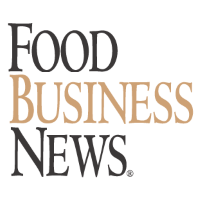
Organic faces Cultural and Institutional Roadblocks at College Cafeterias
(Photo courtesy of the Real Meals Campaign)
Given the importance of both sustainability and plant-based diets for young adults, it would seem reasonable to think that organic has been making massive headway in getting into college cafeterias.
If only this were the case.
By and large, universities have outsourced their food service functions to third-party providers, and not surprisingly, these organizations make food purchasing decisions based on what will drive the most profitable outcome. And when students are required to sign up for the school’s meal plan, it often leaves them with few choices outside of the highly-processed, pesticide-laden, genetically-modified options.
Wanting something different, a growing number of students and university administrators are taking matters into their own hands.
At Kent State University in Ohio, which has an enrollment of 35,000 on eight campuses, the school recently terminated its contract with Aramark.
According to a story from Inside Higher Ed, Kent State officials said bringing food services in-house will allow the university to invest in more sustainable food production and service, meet student food preferences, improve relationships with local workers and allow dining services to be more financially efficient; thus, dispelling the notion that it is more economical to outsource this function.
Over the years, Brown University has taken concerted steps away from industrial agriculture.
It prioritizes food purchasing from small local and regional farmers that are within 150 miles of the school and have revenues less than $5 million. Additionally, Brown implemented a Farm to Fork program, secured sustainable seafood partnerships and launched a Community Harvest program to increase its support of food producers in the Rhode Island area.
Efforts to procure food in a more responsible way have netted real results. Brown’s red meat spend meets the five-step criteria of Certified Animal Welfare by A Greener World, 49% of its chicken spend is humane, 100% of its eggs are cage-free and 89% of pork is gestation-crate-free.
AN OPAQUE SYSTEM, FULL OF “KICKBACKS”
While efforts are taking place across the U.S. to move in this direction, there are very deep structural and cultural roadblocks preventing this from happening.
One national organization that is pushing for systemic change is Real Food Generation. Its report, Be-Trayed: How Kickbacks in the Cafeteria Industry Harm Our Communities — And What To Do About It, shines a light on how three multinational corporations — Aramark, Sodexo and Compass Group — control 81% of higher education dining contracts and effectively act as gatekeepers to the $52 billion management industry.
The report outlines the “pay-to-play” system that advantages the food suppliers with the greatest ability to pay, such as Tyson, Cargill and JBS. In the process, small and medium-sized farms and food businesses find it incredibly difficult to participate in the important college market.
Testifying at a U.S. Senate committee hearing on government affairs, New York Assistant Attorney General John F. Carroll, who was in charge of investigating allegations of fraud and waste harming local and state governments in New York, called these rebates (kickbacks) “intentionally opaque.” In an investigation his office pursued under the False Claims Act, Sodexo agreed to a $20M settlement.
That being said, Real Food Generation has made progress. It has redirected approximately $80M in annual spending away from industrial sources and toward Real Food — sources that are local and community-based, fair, ecologically sound and/or humane.
Despite this gain, Aramark, Sodexo and Compass Group had 2019 revenues of nearly $33 billion, so there is a long way to go and these entrenched players are not exactly incentivized to make deep changes to their very profitable model. And when Organic Insider attempted to speak with these three companies about this situation, our emails went unanswered.
ORGANIC IS ONLY ONE PIECE OF THE EQUATION, NOT A SPECIFIC PRIORITY
For organic to become a widely available option at cafeterias throughout the country, the industry will need to take a much more hands-on, active approach. And it should do so quickly.
In the Real Meals Campaign — a program that Real Food Generation, Fair World Project, Friends of the Earth and other groups are spearheading — the mission is to get Aramark, Sodexo and Compass Group to reorient their business away from a system of exclusive relationships with big food companies and toward real meals that support producers, communities, consumers and the planet.
In addition to getting these three international corporations to commit to reducing carbon emissions and CAFO animal products, investing in racial justice and equity, and increasing transparency and accountability, the other goal is to have them achieve 25% Real Food for every campus. While organic may fall under the ‘ecologically sound’ category in Real Food, organic is not specifically mentioned as a target purchase.
In terms of activism among the younger generation, their area of interest is clear.
“Most students are looking at it from a strong justice angle — the impact on marginalized communities, cafeteria employees, workers in the field and people of color,” said Anim Steel, executive director of the Real Food Generation. “I know of no young people fighting for organic.”
 (The graphic above was taken from the Real Food Challenge Impact Report. No specific mention of organic.)
(The graphic above was taken from the Real Food Challenge Impact Report. No specific mention of organic.)
 |
With gratitude, 
Max Goldberg, Founder |
Quick Hits
* Patagonia’s Yvon Chouinard tells the story of his company’s tsampa soup.
* Important op-ed from the Center for Food Safety’s Bill Freese: We now know that the Trump administration interfered with the science on the destructive herbicide dicamba. It’s time for Biden’s EPA to act.
* Actress Scarlett Johansson has joined organic pizza bites company Snow Days as Creative Director, and she also made a strategic investment into the HumanCo parent company.
* Nature’s Path announced the 22 winners of its annual Gardens for Good program, having received over 350 applicants.
* Starting this month, organic clothing brand YES AND will plant a mangrove tree in Madagascar for every purchase from its 10-piece Mother Earth Collection.
* HIPPEAS has named Paul Nardone as its new CEO, with founder Livio Bisterzo transitioning into an Executive Chairman role.
* How mushrooms took over food and wellness.
* Beyond Pesticides has put together a stellar line-up for its 2021 National Pesticide Forum. The virtual conference begins on May 25th and runs through June.
* Miyoko’s ventures into the world of fragrances with a new line of vegan cheese-inspired scents. 😉
* Danish meal kit firm Simple Feast just entered the U.S. market and is bringing regenerative agriculture to the masses.
* MIT’s Stephanie Seneff on which toxic chemical is most likely responsible for the manatees starving in Florida.
* The public oral argument challenging the FDA’s approval of Impossible Foods’ genetically-engineered soy leghemoglobin begins today.
* The USDA is seeking 4 nominees for its National Organic Standards Board, and the deadline to apply is June 1st.
New Organic Products
Magic All-One Chocolate from Dr. Bronner's
This summer, Dr. Bronner's will introduce a new line of organic, fair trade and vegan chocolate. The Magic All-One Chocolate Bars be available in six flavors -- salted dark, roasted whole hazelnuts, crunchy hazelnut butter, salted whole almonds, salted almond butter and smooth coconut praline -- and all are based in 70% dark chocolate from regenerative organic cocoa beans and sweetened with coconut sugar.Citrus Immunity from Suja Organic
New from Suja Organic is Citrus Immunity. This tropical cold-pressed organic juice is made with functional ingredients such as orange, pineapple, mango, coconut water, lemon, ginger and acerola cherry, and it provides Vitamins C & D, zinc and live probiotics.Vegan Ice Cream from Forager Project
Fresh off its recent launch of plant-based cheese, Forager Project continues to innovate with its new line of vegan organic ice cream. They come in five flavors -- vanilla bean, bittersweet chocolate, cookies & cream, salted caramel and mint chip -- and will be available this spring at retailers nationwide.Plant-Based Sipping Broths from Grace's Goodness Organics
Recently rebranded as Grace's Goodness Organics, these plant-based sipping broths come in three flavors -- Vitality (vegetables & rosemary thyme), Immune (vegetables & cumin turmeric) and Better Belly (vegetables & lemon ginger). Just add water.
Weekly News Summaries


Aphria looks to Acquire CPG Brands
By Katie Tsai
Irwin Simon, formerly of Hain Celestial, is looking to acquire CPG brands as it waits for pot legalization in the U.S.

Chickapea closes CAD$9.3M Series C Round
By Mary Ellen Shoup
Led by District Ventures Capital, InvestEco Capital and Export Development Canada, the Canadian organic chickpea pasta brand will use the funds for new product innovation and to increase distribution across Canada and the U.S.

Shopify Taps Into Natural, Organic Grocery With New App
By Marian Zboraj
GreenDropShip is making it easier for retailers to add natural and organic grocery products to their online stores and automate their order fulfillment.

Plant-Based Market worth $7B in 2020, Posting 27% Growth
By Megan Poinski
A total of 57% of U.S. households purchased plant-based food in 2020, up from 53% in 2019.


EU Commissioner: Organic is "Healthier"
By Natasha Foote
Words you would never see from a leading USDA official.

Sun-Maid Growers to acquire Plum Organics from Campbell Soup
By Keith Nunes
Campbell made this move to focus on driving growth in its soups, sauces and beverages.

President Biden Appears to Ready to Tackle Big Ag's Dominant Players
By Tom Philpott
The new administration is signaling it could shake up 'agribusiness as usual.'


Whole Foods Market launches Sourced for Good label
This exclusive third-party certification program aims to support responsible sourcing by providing tangible improvements in farmworkers’ lives, strengthening worker communities and promoting environmental stewardship.

Want to Avoid GMOs in Canada? New Rules Will Make That Harder
By Marc Fawcett-Atkinson
Canadians could soon be buying genetically-modified foods and plants sold with minimal government oversight, recently released federal guidance suggests.

Much Uncertainty regarding the National Bioengineered Food Disclosure Standard
By Elaine Watson
According to experts, many stakeholders are not yet up to speed on the new GMO-labeling rule, which becomes mandatory on January 1, 2022.
Want to share this newsletter on social media? You can use this link: Newsletter Link
The material in this newsletter is copyrighted and may be reprinted by permission only. All requests must be in writing. Please use our contact form to request republication rights.
Newsletter Archive
Quick Hits
* Patagonia’s Yvon Chouinard tells the story of his company’s tsampa soup.
* Important op-ed from the Center for Food Safety’s Bill Freese: We now know that the Trump administration interfered with the science on the destructive herbicide dicamba. It’s time for Biden’s EPA to act.
* Actress Scarlett Johansson has joined organic pizza bites company Snow Days as Creative Director, and she also made a strategic investment into the HumanCo parent company.
* Nature’s Path announced the 22 winners of its annual Gardens for Good program, having received over 350 applicants.
* Starting this month, organic clothing brand YES AND will plant a mangrove tree in Madagascar for every purchase from its 10-piece Mother Earth Collection.
* HIPPEAS has named Paul Nardone as its new CEO, with founder Livio Bisterzo transitioning into an Executive Chairman role.
* How mushrooms took over food and wellness.
* Beyond Pesticides has put together a stellar line-up for its 2021 National Pesticide Forum. The virtual conference begins on May 25th and runs through June.
* Miyoko’s ventures into the world of fragrances with a new line of vegan cheese-inspired scents. 😉
* Danish meal kit firm Simple Feast just entered the U.S. market and is bringing regenerative agriculture to the masses.
* MIT’s Stephanie Seneff on which toxic chemical is most likely responsible for the manatees starving in Florida.
* The public oral argument challenging the FDA’s approval of Impossible Foods’ genetically-engineered soy leghemoglobin begins today.
* The USDA is seeking 4 nominees for its National Organic Standards Board, and the deadline to apply is June 1st.




